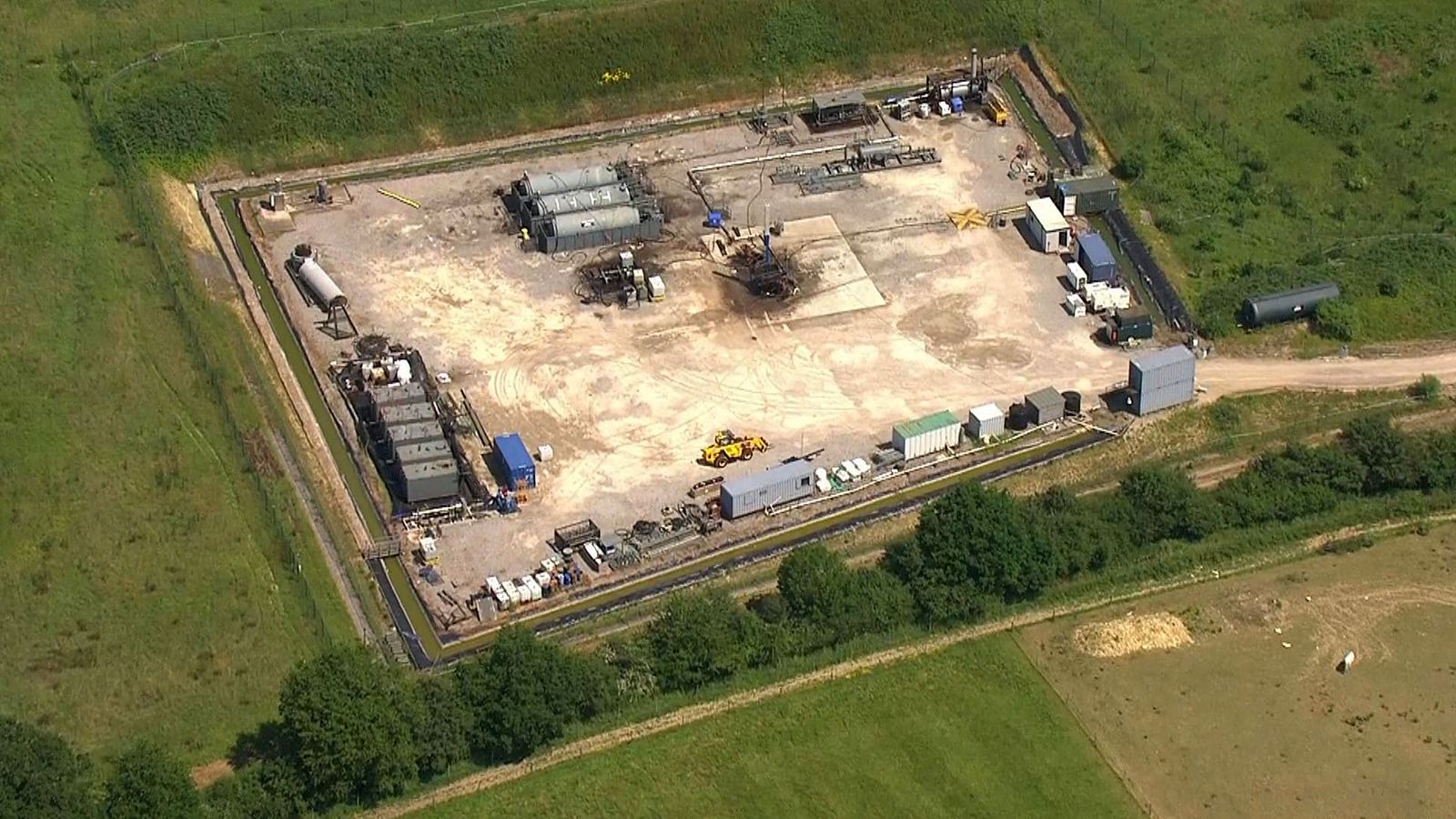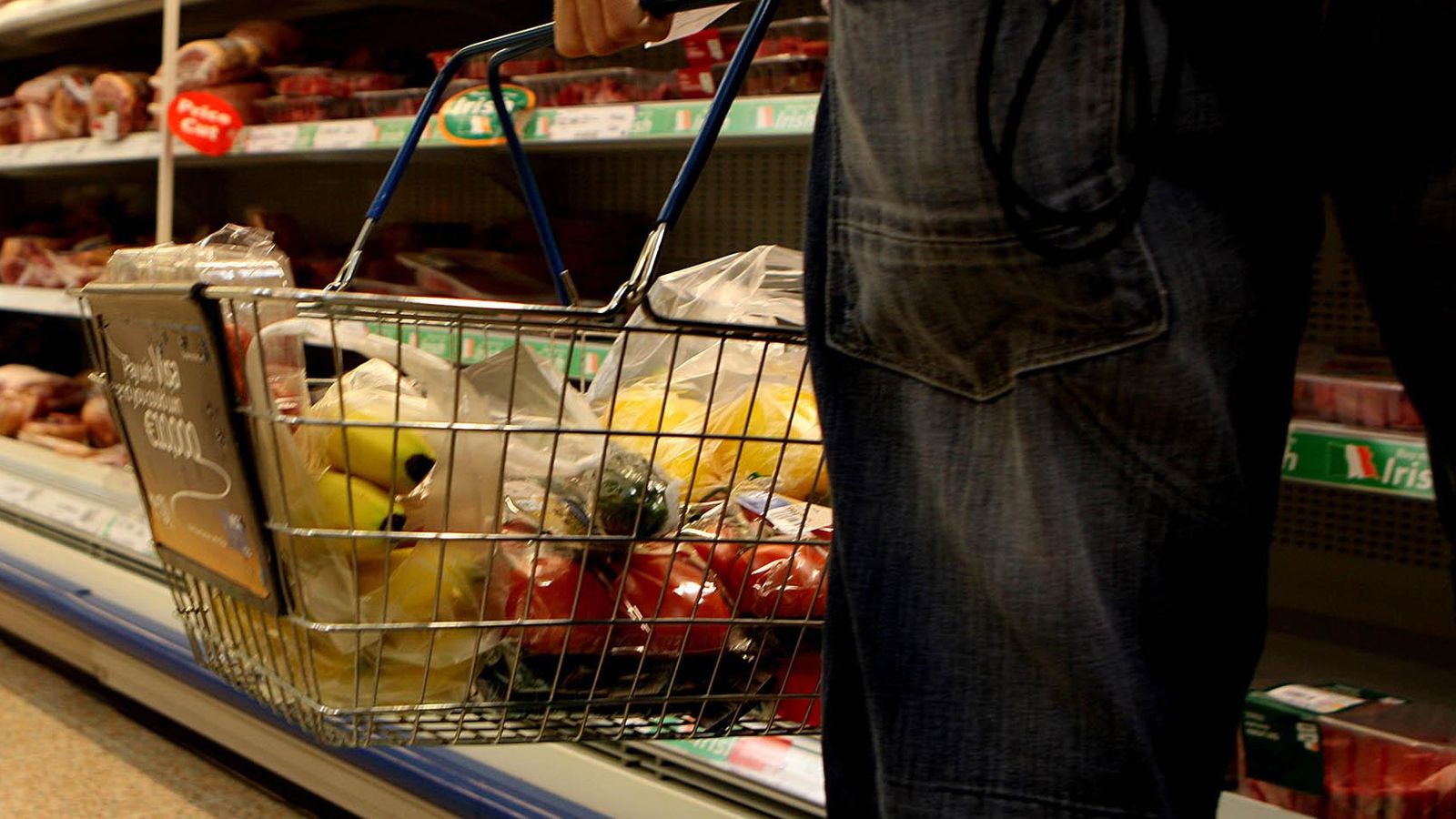The deep meadow grass and dappled forests of oak and beech in Surrey are the unlikely settings for a new frontier in fossil fuel exploration – and a legal test case that threatens any new oil and gas extraction in Britain.
Horse Hill, near Horley, is the site of an oil well that’s already in production.
It is well screened by woodland and bushy hedges, but footage from the air reveals a wide area of hard standing around a rig, flanked by storage tanks and temporary buildings. Horses graze the field next door.
Surrey County Council has given permission to expand operations, but this has been challenged by campaigners.
Lisa Scott Conte says they failed to look at the whole environmental impact.
“Surrey County Council didn’t consider the burning of the fuel,” she said.
“They only considered the climate emissions as the oils and gases are being produced and not the downstream impact of what would happen when the produced oil is actually burned, when it is in the engines of cars and trucks.”
This is the issue in front of the Supreme Court on 21 June – should planning decisions be based not just on local environmental impacts but the evident harm of climate change when the products of that drilling are burnt?
Read more:
Hottest ever start to June as global temperatures spike
National Grid to keep blackout prevention scheme for winter
The challenges of getting to a net zero world
These are known as ‘downstream emissions’. A critical test case according to Katie de Kauwe, a lawyer for the campaign group Friends of the Earth – judging by other interested parties who have got involved.
“This case could have an incredible impact,” Ms Kauwe said. “The fact that the promoter of the West Cumbrian coal mine has decided to intervene in this case shows that, because these are two distinct fossil fuel projects.
“The issue of ‘end use’ emissions is one of huge significance because ultimately that’s where the majority of the carbon emissions arise.”
Around 20 miles east of Horse Hill, the same company – UK Oil and Gas – applied to drill for gas and, despite planners rejecting this one, the government intervened to have it overturned.
The site is right between a designated ‘Area of Outstanding Natural Beauty’ and the pretty village of Dunsfold.
It is neighbourhood impacts which local resident Sarah Godwin from ‘Protect Dunsfold’ will see examined by the High Court.
“I would very much like to see the judge reverse the previous decision of the secretary of state,” she said.
“You can’t have a drilling site with all the water pollution potential, light air pollution in a rural area. But more than that, they’re going to have very big vehicles on small country lanes.”
Click to subscribe to ClimateCast with Tom Heap wherever you get your podcasts
But it is undeniable that the UK still burns a lot of fuel. Many of the picturesque Surrey villages will be heated with oil or gas, most of us still fill cars at the pump.
In fact, around three quarters of all our energy comes from fossil sources.
Be the first to get Breaking News
Install the Sky News app for free
Charles McCallister, director of policy at the lobby group UK Onshore Oil and Gas believes this justifies further exploration here – even in a climate crisis.
“It is incontrovertible that the UK will continue to need oil and gas over 2050 and beyond,” he said.
“The question is where do we get it from? Imports do not offer the evident economic, environmental and geopolitical benefits a domestic industry would offer. Specifically, imported oil and gas is much, much more carbon intensive than domestically produced gas.”
The government broadly agrees that some new drilling will be allowed and is compatible with our target of reaching net zero carbon emissions by 2050.
The Labour Party recently pledged to stop new oil and gas exploration. The Supreme Court’s verdict could trigger both political and environmental shockwaves.
Their judgement is expected later this year.
Watch The Climate Show with Tom Heap on Saturday and Sunday at 3pm and 7.30pm on Sky News, on the Sky News website and app, and on YouTube and Twitter.
The show investigates how global warming is changing our landscape and highlights solutions to the crisis.








